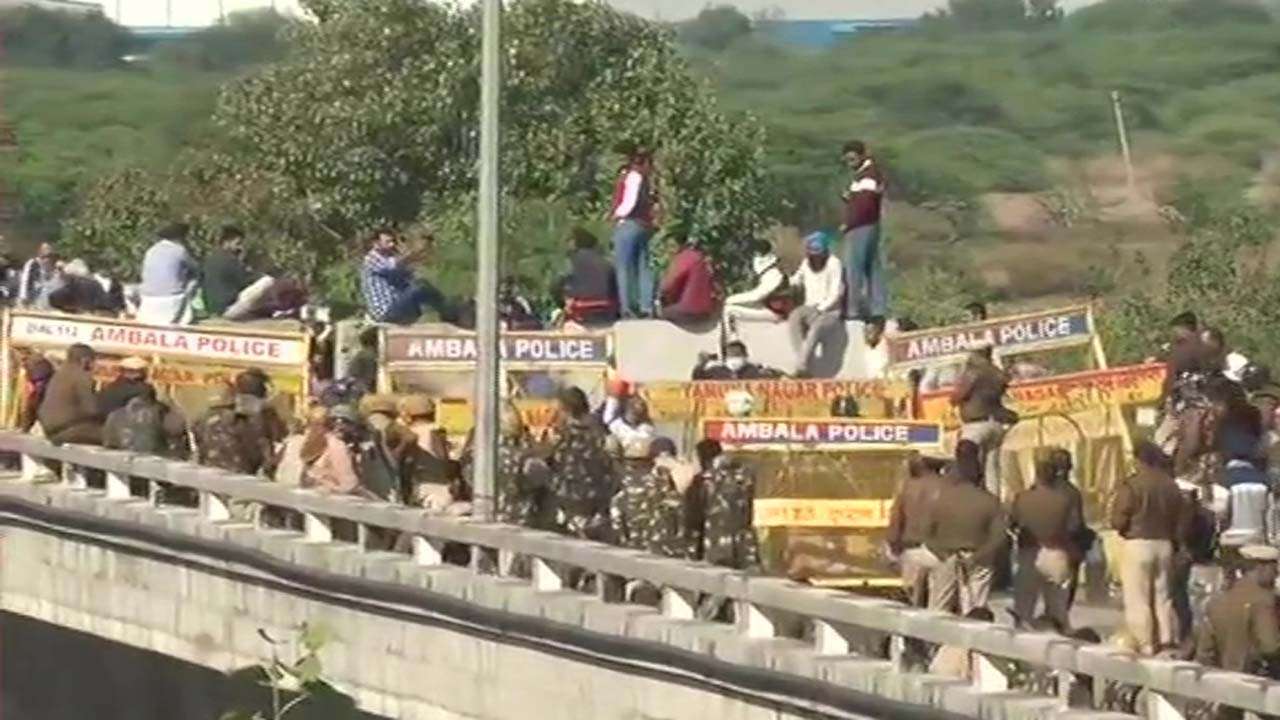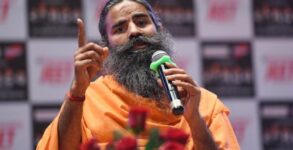To register their protest against recent farm legislations, farmers from states of Punjab, Haryana, Rajasthan, and Uttar Pradesh are marching towards New Delhi. While farmers have full support from governments of Punjab and Rajasthan, governments of UP and Haryana have neglected to listen to their demands. Farmers are hoping for a withdrawal of three legislations (The Farmers’ Produce Trade and Commerce (Promotion and Facilitation); The Farmers (Empowerment and Protection) Agreement of Price Assurance; and Farm Services and The Essential Commodities (Amendment) or guarantee of minimum support price for their crops.
Farmers have been arguing that these legislations will eventually bring an end to the mandi system and leave them vulnerable to corporates bringing an end to assured procurement of their crops at MSP. Farmers have now started collecting and agitating at Haryana border. The response by the Centre has been brutal. The police has resorted to use of water cannons (in winters) and tear gas at them. Highways have been dug to prevent them from entering. Huge pipes and mud has been laid on bridges to block entry. Delhi police even sought permission to convert nine stadiums into temporary prisons for farmers, which was ultimately rejected.
Opposition has come in support of protesting farmers. Chief Minister of Punjab, Capt Amarinder Singh tweeted, “The voice of farmers cannot be muzzled indefinitely. Centre should immediately initiate talks with Kisan Union leaders to defuse the tense situation at the Delhi borders.” Rahul Gandhi supported farmers’ fight of truth and said that Modi government must take back the “black laws”. Chief Minister of Rajasthan, Ashok Gehlot criticized the NDA government’s anti farm policies. Delhi Chief Minister Arvind Kejriwal supported the constitutional right to protest peacefully and called the legislations anti farmers.
Support for farmers has poured in from all corners. However it is in their coverage of these protests that main stream media has demonstrated new lows. Zee News is running a hashtag #FarmersProtestHijacked and AandolanMeinKhalistan and implied that it is being supported by ‘Khalistan’. They asked “Kisan Andolan se vote ki fasal ki tayyari?” They also covered plight of groom who has to walk without a horse due to the protests. They have repeatedly insinuated that opposition is misleading the farmers.
ANI chose to focus on some student woes whose exams were allegedly cancelled due to protests. Times Now is running a hashtag #KisanKanoonClash and said that opposition is “inciting the farmers” and blamed the farmers for being responsible for another mass gathering that could lead to COVID increase.
ABP news raised questions on motive behind protests and said that opposition is playing politics “rajniti ki roti” they termed it tastelessly and asked “kya andolan ke peeche vote hain? (“Are there votes behind the protests”). CNN News termed Dilli Chalo a ‘war cry’ and asked “Who is misleading farmers?” and used the hashtag #KisanPolitics. Their debate invited several panelist to speak in support of the legislations. Republic predictably ignored the issue altogether and instead chose to focus on ‘Arnab’s lead story’ anchored by Arnab himself.
The main stream media has demonstrated a new low in covering the protest and conveniently chosen to ignore the brutal crackdown on farmers’ basic democratic rights. They have focused instead on opposition, as is now perhaps expected of them. They have blamed opposition for inciting and misleading the farmers, doing ‘vote politics’ and causing unrest. They have painted farmers as misled, uninformed, angry and impatient. They have predictably refused to question the centre for refusing to engage with the farmers, on debating the merits and demerits of the legislation, or the violent police onslaught.
The views expressed above are author’s own.

















